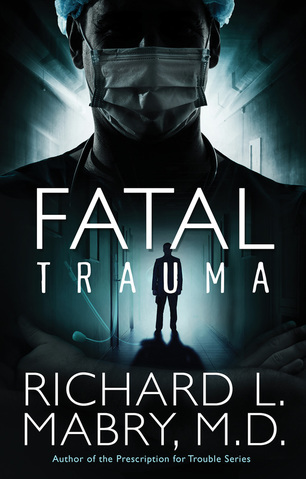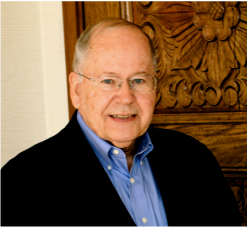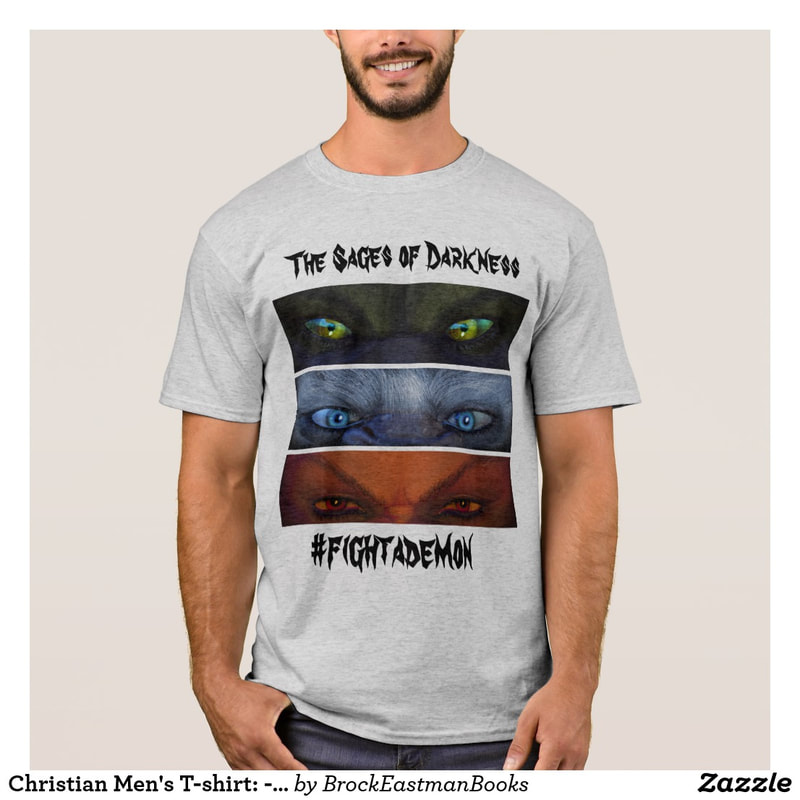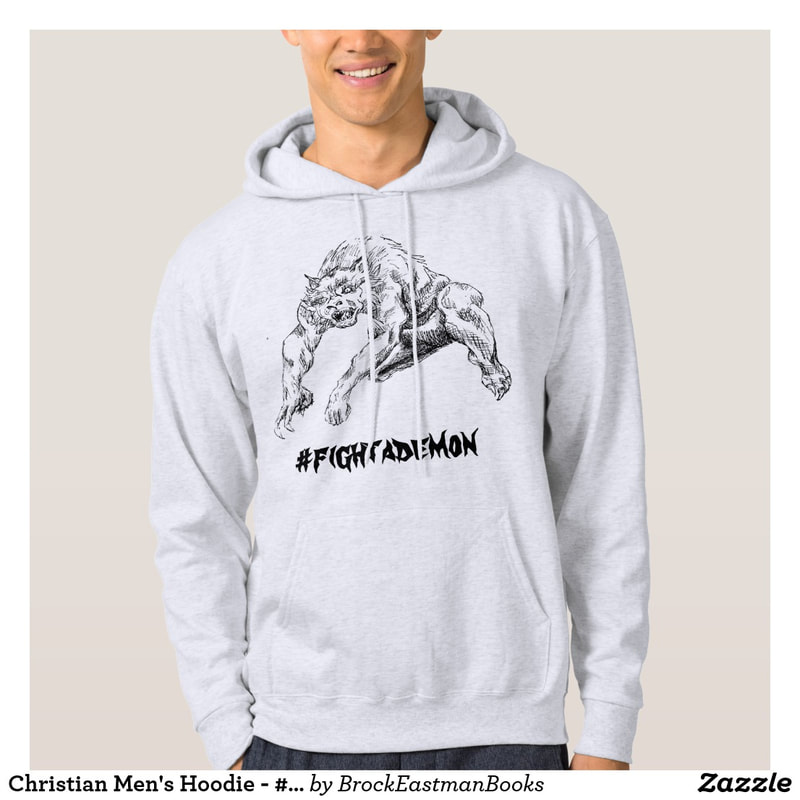 Interview by Brock Eastman Featuring Richard L. Mabry When Dr. Mark Baker and Nurse Kelly Atkinson are held at the mercy of a dangerous gunman, the lives of every emergency room patient are at stake. At the end of the evening three men are dead. One is a police officer whose life couldn't be saved despite Mark's best efforts. The other two are members of a drug cartel. After the standoff, the killing is not over. When the drug cartel loses members, revenge is not far behind. Facing an adversary whose desires are dark and efforts are ruthless, Mark finds himself under suspicion as a killer, yet still a potential victim. When he turns to his high school sweetheart, attorney Gwen Woodruff, for help, Kelly helplessly looks on, hiding her own feelings for Mark. Three questions remain: Who is the shooter? Who will the next victim be? And can Mark prove his innocence before the gun turns on him? "Fatal Trauma asks big questions of faith, priorities, and meaning, all within the context of a tightly crafted medical drama." -Steven James, best-selling author of Placebo and Checkmate Brock: How did you come up with the idea for this book? Richard: It began with a conversation, discussing the time a physician whom I was privileged to help train confronted a man with a gun in a hospital emergency room. Since Mexican drug cartels have extended their influence into our area of Texas, it seemed natural for me to add that to the idea stirring in my head. Thus, Fatal Trauma was born. Brock: Tell us about the main characters. Who are they? What makes them unique? Richard: Dr. Mark Baker is an emergency room physician. He knows it’s time to settle down, but he isn’t sure he’s met a woman who’s “the one”—until he sees her with a gun to her head. Nurse Kelly Atkinson has already decided that Mark is her “one,” and when they both seem to be just a trigger’s pull from death, she’s more certain than ever. Brock: Give us one fact about each main character that no one else knows. Richard: Mark had a year of surgery residency before he decided he wanted to treat “a little bit of everything.” That’s why he’s an ER doctor. Rachel’s parents are divorced, but unlike many such situations, their separation didn’t drive her away from Christianity—it brought her closer. Brock: In three words, what is this book about? Richard: Faith under fire. Brock: Do you outline the entire book before starting, or do you write as you go and let the characters take control of the story? Richard: I’m a seat-of-the-pants writer. I start with a premise or hook. Then I populate the story, although I learn more about the characters as the novel develops. I figure out something to keep the story moving and prevent a sagging middle, then craft what I hope will be a surprising and satisfying ending. Brock: How do you believe this story relates to the lives of readers? Richard: I don’t think my readers are ever going to go through the trials of my two protagonists…at least, I hope not. But what I’d like them to realize, after they finish reading Fatal Trauma, is that even when things look bad God is with them. He doesn’t cause bad things to happen, but He’ll stand by us as we get through them. Brock: What is your favorite genre to write for? Richard: I tried writing in a number of genres before I finally settled on medical suspense. Then, because there’s a bit of romance in all my books and they have a Christian point-of-view, I adopted the tag, “Medical suspense with heart.” Brock: Are your novels part of a series or are they freestanding? Richard: My novels are totally freestanding, and can be read in any order. I think this is harder for an author than writing a series, since in earlier books they will have created a locale and characters. Nevertheless, I’ve had numerous readers (and publishers) tell me they prefer freestanding novels. Brock: Any certain research required for the book, or is it all from your imagination? Richard: People think that, because I’m a physician, I should be able to write medical scenarios without having to do any research, but that’s not right. Medicine is constantly changing, and the way a heart attack was treated a year or two ago is most likely different from what is best practice now. As for the scenarios themselves, those are products of my imagination, although sometimes I insert details from my experience or that of other physicians. Brock: How do you strike the right balance in your book? Richard: The two major elements I try to balance in my novels are suspense and romance. I let the characters themselves dictate the way the plot proceeds, and thus they determine how much of each element is in each book. When I look at the plot after it’s wound up, I generally end up with slightly more suspense than romance, but that’s not due to any conscious decision on my part. Brock: How does it feel to have your work published? Richard: Since I either wrote or edited eight textbooks during my time as a practicing physician, I figured seeing my first non-medical book in print wouldn’t be that big a deal, but I was wrong. What got me into this type of writing in the first place was my non-fiction book, The Tender Scar: Life After The Death Of A Spouse, and when the book came out I was thrilled that God helped me take the event that was the toughest I’d ever experienced and turn it into something that might help others. Every time I am reminded of that book (which continues to minister to thousands), that thrill comes back. Since Fatal Trauma will be my eighth published novel, you might think there wouldn’t be any emotion associated with seeing the book in print…but you’d be wrong. I guess it never goes away. Brock: Why did you choose to focus on a male or female protagonist? Richard: I wrote four novels over four years that were all rejected by publishers. Each of them had male protagonists…because I was a man, so that’s how I thought. Then I read that 85% of Christian fiction readers were women and they preferred female protagonists. Well, as one of my med school professors used to say, “You can teach a white mouse in three times.” So I switched to female protagonists. It was only after I’d had four novels published that I was brave enough to write with a male lead character, and I’ve sort of alternated since then, always with both a male and female playing prominent roles. And, since I’m always asked how I can write authentic fiction from a female perspective, I have to give credit to my wife, Kay. She’s my first reader, biggest fan, and severest critic, and doesn’t hesitate to say, “No, a woman wouldn’t say/do that…she’d say/do this.” And she’s right. Brock: Can you give us a hint about your next book? Richard: After Fatal Trauma comes Miracle Drug, due for publication this fall. It’s a novel that I actually wrote before Ebola became a household word. In Miracle Drug, a doctor is suddenly called on to treat an unusual, normally fatal infection sustained by an ex-President and the doctor’s girl friend. A cure would require both heroic efforts and a miracle drug. Brock: Where do you like to write? Richard: Although some of my colleagues like to use their laptops to write in coffee houses or on their back porch, I do almost all my writing in my office. There’s something about having a place to sit down and act like an author that seems to help me plot and compose more effectively. Brock: Are you a full-time or part-time author/writer? Richard: I’m retired from my career practicing medicine, but I’ve found that “life” continues to demand a great deal of my time. So, even though I don’t have to leave the house for a job each day, I still consider myself fortunate if I can snatch an hour or two each morning and/or evening to write. Brock: How long does it usually take you to write a single book? Richard: My first book took me well over a year to write, what with all the edits and revisions, because I was trying to get that elusive first fiction contract. Since then, although I’d love to have the luxury of a year between books, contracts and deadlines have dictated a book each six months (except for a couple of lulls when I changed publishers). Brock: What do you hope readers take away from your novels? Richard: My books are Christian fiction—that is, although there are no altar calls or long Scripture passages, they involve the struggles that affect all of us who are Christian. I’m trying to convey two messages in the books: the Christian is not immune to bad things happening, and God is always there to help us get through those bad times. Brock: What is your "how I got published" story? Richard: In 2009 I had no aspirations to write non-medical material. My wife of 40 years and I were going to retire, build on some farmland I’d purchased, and relax. Instead, she died of a sudden stroke. I used journaling as a grieving tool, and some friends who read what I was writing suggested I turn it into a book. Unfortunately, I had no idea how one did that, and eventually I attended a Christian writers’ conference. That was where I not only learned what I had to do to turn my journaling into a book, but was also challenged by two faculty members to try my hand at fiction. Eventually I received a contract for The Tender Scar: Life After The Death Of A Spouse. Then, a few years later, I finally got my first fiction contract. Brock: What’s your view on e-books and the new publishing revolution? Richard: When I first started seeking publication, writers who self-published were looked down on by those whose work was accepted by traditional publishing houses. That’s all changed now, and many writers are choosing to self-publish. The thing that bothers me about self-publication (both e-publishing and print-on-demand) is that some authors, in avoiding curation by agents and editors, put things out when they’re not ready for publication. Notice I said “some”—not “all.” Brock: What are your hopes for your future as an author? Richard: The death of my first wife taught me an important lesson: we’re not guaranteed tomorrow. Each morning, I thank God for that day and try to use it wisely and well. I suppose I should worry about future novels and contracts, but one day at a time I try to write the best book I can. After that, it’s sort of out of my hands. Brock: Coke or Pepsi? Richard: Actually, since my step-son works for that corporation, I’m going to say Dr. Pepper…specifically Dr. Pepper Ten. (Got to watch those calories). Brock: Favorite place to vacation? Richard: It’s probably a tie between a condo on Maui and the Palmenwald Hotel in the Black Forest of Germany. But I have to admit that, the older we get, the more Kay and I like our home and our routine, so the less we are likely to travel. Brock: Favorite season? Richard: Spring—when the weather gets nicer and baseball players report to camp for spring training. Brock: Favorite color? Richard: Blue Brock: Do you have a favorite Bible verse? Richard: I hang my hat on Romans 8:38-39, which tells me that nothing—not even death— can separate us from God’s love. Brock: What books do you read for pleasure? Richard: I’ve always loved mysteries, thrillers, detective stories, and the like. I suppose that’s why I feel comfortable writing medical suspense. I read both Christian and non-Christian fiction, and I have too many favorite authors to start naming names (for fear I’d leave one out). Brock: I understand that golf holds a special place in your life. Can you explain? Richard: Jerry, my friend and attorney, and I started playing golf together after we met to probate my first wife’s will. That was in 1999, and we’ve missed very few Wednesday mornings since that time. Our friendship and time together has spanned the death of his first wife, remarriage for both of us, and a variety of events both good and bad. We talk about everything, enjoy being outdoors, and don’t keep score. It’s amazing how much more enjoyable the game is that way.  Author Website: RMabry.com Author Facebook: facebook.com/rmabrybooks Author Twitter: twitter.com/RichardMabry Author Pinterest: pinterest.com/RichardMabry Author blog: RMabry.blogspot.com
0 Comments
Leave a Reply. |
Follow meArchives
May 2024
Categories
All
|






 RSS Feed
RSS Feed